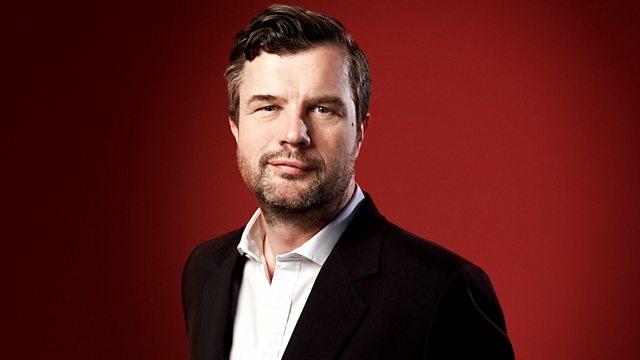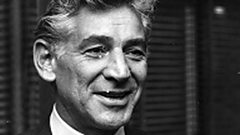OAE at 30
Petroc Trelawny celebrates 30 years of the Orchestra of the Age of Enlightenment, reviews a new book by Andrew Gant exploring the history of English church music and looks back at an infamous performance of Brahms's First Piano Concerto with pianist Peter Donohoe.
Last on
Clip
Chapters
-
The Curious Incident of Bernstein and Gould Brahms' 1st Piano Concerto
Duration: 14:19
OAE celebrates 30 years
Duration: 16:11
Andrew Gant 'O Sing Unto the Lord'
Duration: 12:14
THE CURIOUS INCIDENT OF BERNSTEIN AND GOULD’S BRAHMS’ 1ST PIANO CONCERTO
![THE CURIOUS INCIDENT OF BERNSTEIN AND GOULD’S BRAHMS’ 1ST PIANO CONCERTO]()
As the audience settled themselves to hear Glenn Gould perform Brahms’ D minor piano concerto with the New York Philharmonic in 1963, the conductor Leonard Bernstein strode onto the stage alone and made an announcement to the public. In it, he distanced himself from Gould’s interpretation of the work they were about to hear and gave his reasons. He then turned and welcomed Gould onto the platform and together they performed the piece. It’s a unique incident in music history and Petroc, together with pianist Peter Donohoe, revisit the archive of Bernstein’s speech; Gould’s response in a radio interview a year later, and the performance itself, and discuss why Bernstein might have acted as he did.
ORCHESTRA OF THE AGE OF ENLIGHTENMENT CELEBRATES 30 YEARS
![ORCHESTRA OF THE AGE OF ENLIGHTENMENT CELEBRATES 30 YEARS]()
This week the period instrument group, the Orchestra of the Age of Enlightenment launches its 30th birthday season. The orchestra was founded and managed by the players themselves and run on democratic lines – they would choose who conducted them, what pieces they played and how they played them. Thirty years on, how have those ideals survived a changing musical landscape? How has its repertoire expanded and how does it keep itself fresh? Petroc talks to some of the OAE players, the critic Hilary Finch and conductor Mark Elder to see how the orchestra has developed and adapted and what challenges might lie ahead.
More information:ANDREW GANT ‘O SING UNTO THE LORD’
![ANDREW GANT ‘O SING UNTO THE LORD’]()
Andrew Gant’s latest book traces the history of English church music from Anglo-Saxon times to the present day, placing it in its social and historical context. It looks at how the political, cultural and musical changes that have swept over England throughout the last thousand years have influenced the music written for the church and how these developments are reflected back in the music itself. Petroc talks to Andrew Gant about his book and reviews it with musicologist Professor Tess Knighton.
Credits
Role Contributor Presenter Petroc Trelawny Interviewed Guest Peter Donohoe Interviewed Guest Andrew Gant Broadcasts
- Sat 10 Oct 2015 12:15���˿��� Radio 3
- Mon 12 Oct 2015 22:00���˿��� Radio 3
Knock on wood – six stunning wooden concert halls around the world
Steel and concrete can't beat good old wood to produce the best sounds for music.
The evolution of video game music
Tom Service traces the rise of an exciting new genre, from bleeps to responsive scores.
Why music can literally make us lose track of time
Try our psychoacoustic experiment to see how tempo can affect your timekeeping abilities.
Podcast
-
![]()
Music Matters
The stories that matter, the people that matter, the music that matters






